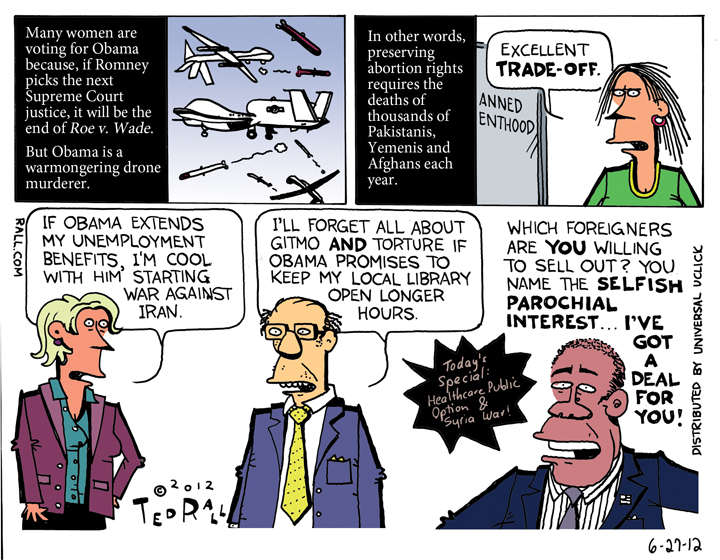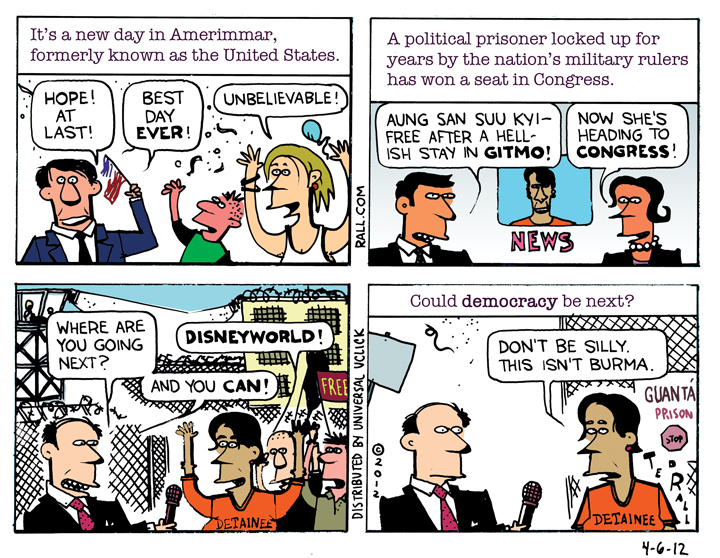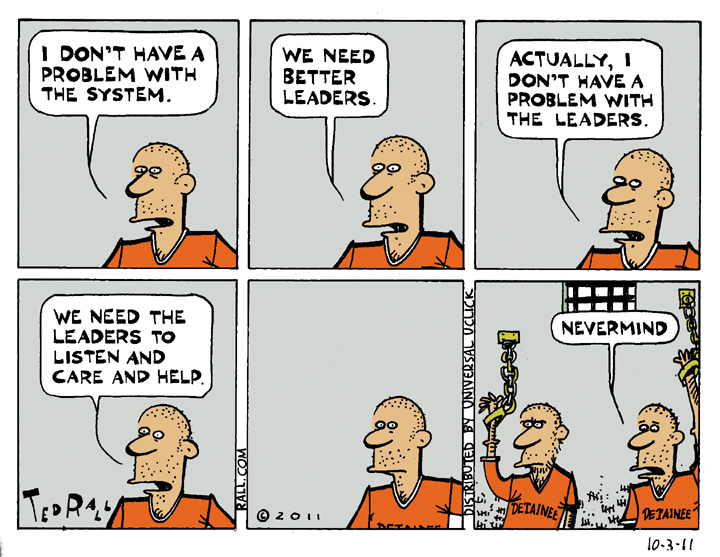Romney-Ryan Extremism Could Revive Liberal Support for Obama
Soviet citizens had to be Kremlinologists, studying subtle linguistic and tonal shifts in state propaganda, noting the seating order of party leaders at official functions, in order to predict the future direction of their lives. So too are we Americans, for without any way to really get to know our politicians—their press conferences and interviews are too infrequent and carefully stagemanaged, unchallenged by compliant journalistic toadies—we are reduced to reading signals.
Even to an alienated electorate, the tealeaves are easy to read on the Republican side.
Between Romney’s selection of Paul Ryan as his running mate, his team of Dubya-rehash economic advisors (because that worked out so well) and Tea Party favorite Chris Christie as keynote speaker at this year’s Republican National Convention, the Republican Party is in danger of doing something that seemed impossible just a few months ago: strengthening support among the liberal base of the Democratic Party for President Obama.
Granted, disappointed lefties will not soon forget Obama’s betrayals. Guantánamo, the concentration camp that supposedly holds “the worst of the worst” terrorists, remains open—although, now that the White House is reportedly negotiating with the Taliban to exchange captured Afghan ministers for an American POW, one assumes they’re not all that bad. The drone wars against Afghanistan, Pakistan, Yemen and elsewhere are an affront to basic morality, logic and decency. On the economy, this tone-deaf president has yet to propose a jobs program, much less try to push one through Congress.
But many progressives, until recently threatening to sit on their hands or cast votes for a third party, are reconsidering, weighing disgust against gathering terror as they read the signals from the gathering storm in Tampa. Where Obama fails to inspire enthusiasm, the Romney team seems determined to generate as much fear as possible that he plans to shove the needle even further to the radical right than Reagan or Bush.
Romney, who abandoned his history as a centrist Massachusetts Republican and is running as a right-winger, chose to balance his newfound extremism with Paul Ryan, an even-more-right-winger. Ryan is a vicious, overrated ideologue whose greatest achievement, his theoretical budget proposal, paints a picture of America as a dystopian hell where an infinitely funded Pentagon wages perpetual war and the top 1% of the top 1% party on tax cuts while the elderly and poor starve or succumb to treatable diseases, whichever kills them first. (In the media today, this gets you lionized as “smart,” “wonky,” and “an intellectual heavyweight.” Ryan = Sartre.) Lest you wonder whether the Ryan selection is an anomaly, wonder not—from Christie to the stump speeches to the men first in line to join a Romney cabinet, everything about Team Romney screams Tea Party, Rush Limbaugh, Ann Coulter, Ayn Rand minus the cool atheism and elitism.
This is a Republican Party that Barry Goldwater wouldn’t recognize, batso nutso, stripped of the last veneer of libertarianism, completely owned by and in thrall to figures whom the media would characterize as “extreme nationalist” or “neo-Nazi” if they spouted the same nonsense in other countries.
If I were advising Romney, I would tell him that cozying up to the lunatic fringe of American pseudoconservatism is not a prescription for victory in November, when the outcome hinges upon seducing that 5% or 10% of voters who swing both ways. Ryan isn’t as crazy (or bold) of a choice as Sarah Palin, but what Republicans don’t understand is that conservatives will vote Republican regardless of who is the vice presidential running mate or, for that matter, who is the Republican nominee for president. Lack of enthusiasm among the base wasn’t Romney’s big problem, it was Obama’s.
Romney’s biggest albatross is that he’s a terrible candidate, a guy who obviously doesn’t like people. And his campaign sucks. The deficit may or may not represent an looming existential threat—unemployment and the environment are more urgent—but “take your medicine” austerity isn’t much of a sales pitch, especially when two-thirds of the people are already feeling squeezed. Voters reward candidates who present an optimistic vision, a future in which they see themselves richer, happier and with fuller, more lustrous hair.
The fact that Romney can’t manage to put forward a credible economic program doesn’t help either. Since his entire campaign is predicated on the argument that he’s the economy guy and knows how to fix it, he needs to cough up a plan.
However, my real concern is that Romney’s gangbusters right-wing extremism lets Obama and the Democrats off the hook.
If all Democratic strategists have to do to attract progressive voters is to frighten them with greater-evil Republicans, when will people who care about the working class, who oppose wars of choice, and whose critique of government is that it isn’t in our lives enough ever see their dreams become party platform planks with some chance of being incorporated into legislation? In recent elections (c.f. Sarah Palin and some old guy versus Barry), liberals are only voting for Democrats out of terror that things will get even worse. That’s no way to run a party, or a country.
(Ted Rall’s new book is “The Book of Obama: How We Went From Hope and Change to the Age of Revolt.” His website is tedrall.com. This column originally appeared at NBCNews.com’s Lean Forward blog.)
COPYRIGHT 2012 TED RALL






